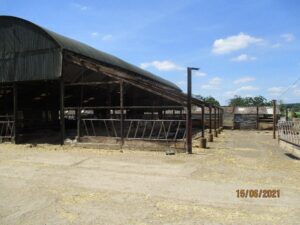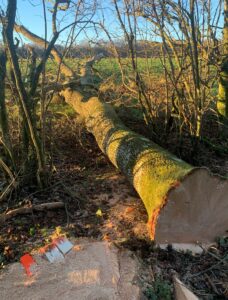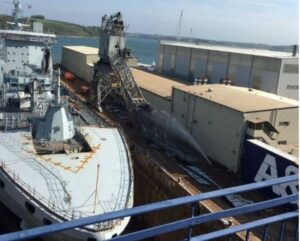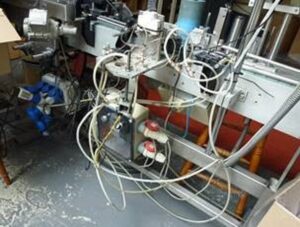Farmer handed suspended prison sentence after worker dies from fall
A farmer from Hampshire has received a suspended prison sentence after a worker fell to his death.
Phillip France lost his life after falling from the roof of a cow shed at Tickner Bros in Hampshire.
The self-employer labourer had been dismantling the cow shed with two other workers when he fell through a rooflight, landing on the concrete floor below on 7 June 2021.
He died from his injuries on 13 June 2021.
The team of workers had been working under the supervision of Philip Tickner.
An investigation by the Health and Safety Executive (HSE) and Hampshire Constabulary found Mr Tickner failed to put arrangements in place to either avoid working at height, prevent a fall or mitigate the consequences of a fall. None of the team of workers were competent enough to work at height as they lacked the understanding of the risks and the associated controls to manage the risks while working at height.

The joint investigation found Mr France had been removing bolt heads from the roof panels with his two colleagues who were walking along the roof with the removed panels, before loading them onto a telehandler. Mr France’s colleagues largely continued this working practice the day after the 57-year-old fell.
HSE guidance can be found here.
Philip Tickner, of Upper Lanham, Old Alresford, Alresford, Hampshire, pleaded guilty to breaching Section 2(1) and Section 3(1) of the Health and Safety at Work etc. Act 1974. He was handed a six-month custodial sentence, suspended for 18 Months, and ordered to pay £2,000 in costs at Winchester Crown Court on 18 October 2024.
HSE inspector Nicola Pinckney said: “Mr France was a well-known and liked man who lived in the local area and worked on different farms. He regularly visited and helped his elderly mother. He also leaves behind a sister and two brothers.
“This was a tragic incident that could so easily have been avoided. Readily available work at height equipment, and well known safe systems of work could have been created and implemented, using workers who were trained and competent to work at height, none of which happened in this case. I hope this case serves as an example and a reminder to others in the industry of the deadly risks they often undertake and how they should be approached.”
Notes to editors:
- The Health and Safety Executive (HSE) is Britain’s national regulator for workplace health and safety. We are dedicated to protecting people and places, and helping everyone lead safer and healthier lives.
- More information about the legislation referred to in this case is available.
- Further details on the latest HSE news releases is available.
- HSE does not pass sentences, set guidelines or collect any fines imposed. Relevant sentencing guidelines must be followed unless the court is satisfied that it would be contrary to the interests of justice to do so. The sentencing guidelines for health and safety offences can be found here.




